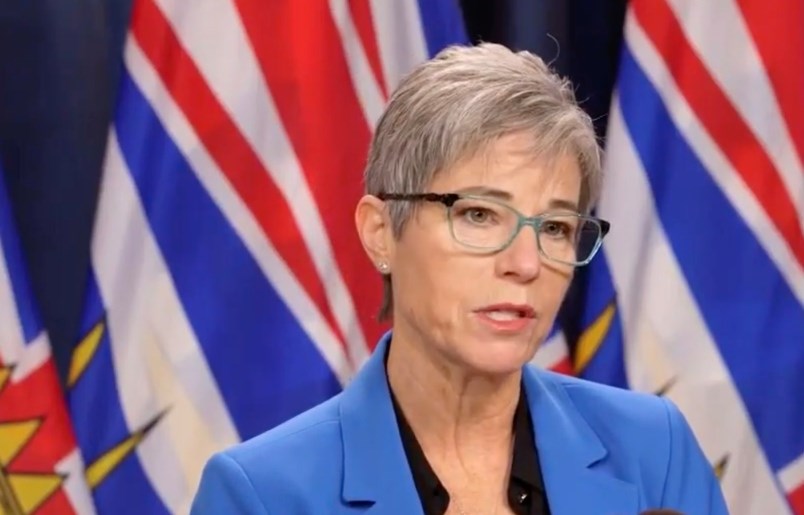The B.C. government ran a surprise $1.3-billion surplus in the fiscal year that ended March 31 despite lingering COVID-19-related spending.
The government in its 2021 budget had forecast that it would run a $9.7-billion deficit.
Instead, the province generated nearly $72.392 billion in revenue and had $71.086 billion in expenses, yielding a slightly more than $1.3-billion surplus.
Minister of Finance Selina Robinson attributed the fiscal windfall on a faster-than-expected economic recovery, where there was more spending and therefore more tax revenue.
There was also one-time federal government funding for COVID-19 relief and for disasters, higher natural-resource revenues and higher profit from Crown corporations, such as ICBC and BC Lottery Corp. according to the government.
Robinson defended a $3.5-billion increase in spending to support residents, compared with record spending in the 2020-2021 fiscal year.
"While others might have chosen cuts and austerity, our investments in people have helped our economy rebound faster than anyone in the public or private sector predicted," she said.
"Looking ahead, the province will keep using this economic strength to support British Columbians, including bringing in new measures in September to help those who are struggling the most with global inflation."
The B.C. government ended the year with $90.666 billion in total debt. About 69 per cent of that is considered tax-payer supported, while the remainder is "self-supported," meaning that it is in provincial Crown corporations.
Tax-payer supported debt rose $3.566 billion to $62.341 billion. Self-supported debt increased by $975 million, to $28.325 billion.
B.C. government data pins the province's tax-payer supported debt-to-gross domestic product (GDP) ratio at 17.9 per cent – what it calls the lowest in Canada.
Government data for B.C. GDP growth in the 2021 calendar year was 6.2 per cent, which was higher than the 4.9-per-cent national average.
B.C. upped its spending on capital projects by $574 million, to about $6 billion. That spending included $1.9 billion to build and upgrade elementary and high schools. It also included $1.4 billion to modernize the province's transportation network, and $1.6 billion on health-care facilities.
COVID-19 cost the government $3.8 billion for various measures, including free vaccines for all residents, grants to small and medium-sized businesses and money for care homes to screen visitors and keep residents safe.
Other pockets of money included $100 million to the tourism sector. Various other grants totalled more than $50 million to the restaurant sector.
Overall B.C. spent $27.6 billion on health care, $15.8 billion on education and $7.3 billion on social services. •



